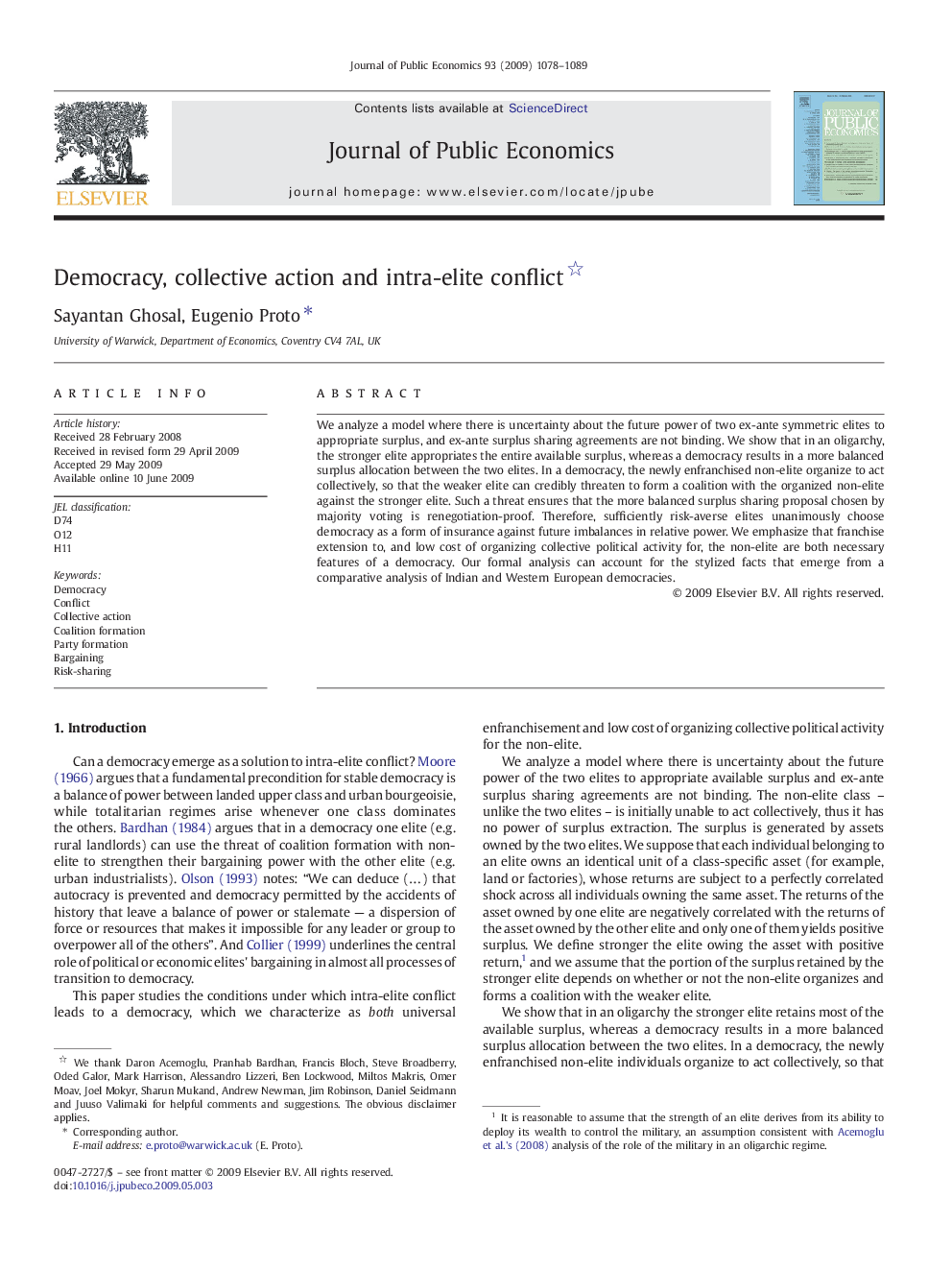| کد مقاله | کد نشریه | سال انتشار | مقاله انگلیسی | نسخه تمام متن |
|---|---|---|---|---|
| 970129 | 1479480 | 2009 | 12 صفحه PDF | دانلود رایگان |

We analyze a model where there is uncertainty about the future power of two ex-ante symmetric elites to appropriate surplus, and ex-ante surplus sharing agreements are not binding. We show that in an oligarchy, the stronger elite appropriates the entire available surplus, whereas a democracy results in a more balanced surplus allocation between the two elites. In a democracy, the newly enfranchised non-elite organize to act collectively, so that the weaker elite can credibly threaten to form a coalition with the organized non-elite against the stronger elite. Such a threat ensures that the more balanced surplus sharing proposal chosen by majority voting is renegotiation-proof. Therefore, sufficiently risk-averse elites unanimously choose democracy as a form of insurance against future imbalances in relative power. We emphasize that franchise extension to, and low cost of organizing collective political activity for, the non-elite are both necessary features of a democracy. Our formal analysis can account for the stylized facts that emerge from a comparative analysis of Indian and Western European democracies.
Journal: Journal of Public Economics - Volume 93, Issues 9–10, October 2009, Pages 1078–1089